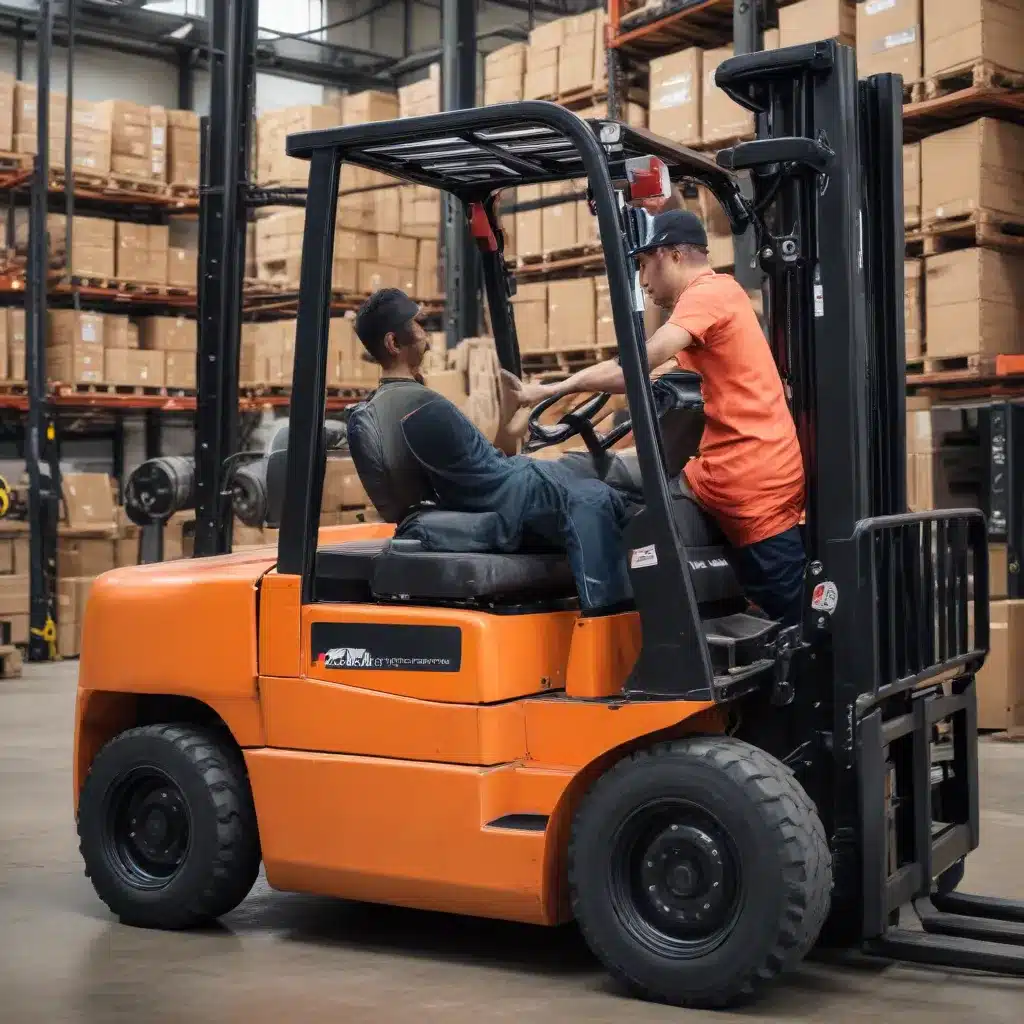
Understanding the Importance of Forklift Maintenance Training
Forklifts are essential tools in a wide range of industries, from manufacturing and warehousing to construction and logistics. These powerful machines are responsible for efficiently moving heavy loads, streamlining operations, and boosting productivity. However, the safe and effective operation of forklifts is heavily dependent on the skill and knowledge of the operators. That’s where forklift maintenance training comes into play.
Investing in comprehensive forklift maintenance training for your workforce is a critical step in ensuring the longevity, performance, and safety of your material handling equipment. By empowering your employees with the right knowledge and skills, you can not only reduce the risk of accidents and costly downtime but also cultivate a culture of proactive maintenance and continuous improvement.
Key Components of Effective Forklift Maintenance Training
To develop a robust forklift maintenance training program, it’s essential to cover several key elements:
1. Pre-Operation Inspections
Conducting thorough pre-operation inspections is the first line of defense in maintaining forklift safety and performance. Your training should emphasize the importance of a comprehensive checklist, covering critical components such as brakes, tires, hydraulic systems, and safety features. Operators must be trained to identify and report any issues or defects promptly.
2. Operational Safety Practices
Forklift operation requires a deep understanding of safe driving techniques, load handling, and navigation within the work environment. Your training should cover topics such as visibility, maneuvering, load stability, and proper procedures for entering and exiting truck trailers or railroad cars.
3. Forklift Maintenance and Servicing
Regularly scheduled maintenance is crucial for ensuring the optimal performance and longevity of your forklift fleet. Your training should educate operators on the importance of preventive maintenance, including tasks like fluid checks, lubrication, and component inspections. Emphasis should also be placed on properly reporting and addressing any maintenance issues.
4. Forklift-Specific Hazard Awareness
Forklifts present unique hazards, such as tipover risks, struck-by incidents, and load-related accidents. Your training should equip operators with the knowledge to recognize and mitigate these potential dangers, including proper load handling techniques, awareness of workplace conditions, and emergency response procedures.
5. Regulatory Compliance
Forklift operations are subject to various safety regulations, such as those set forth by the Occupational Safety and Health Administration (OSHA). Your training should ensure that operators understand and adhere to these guidelines, minimizing the risk of non-compliance and potential penalties.
Designing a Comprehensive Forklift Maintenance Training Program
To develop an effective forklift maintenance training program, consider the following best practices:
-
Assess Your Workforce: Evaluate the skill levels, experience, and training needs of your forklift operators. This will help you tailor the program to address any knowledge gaps and ensure it meets the unique requirements of your workforce.
-
Utilize Multiple Training Methods: Incorporate a blend of classroom-style instruction, hands-on practical training, and ongoing refresher courses to reinforce key concepts and skills. This approach helps cater to different learning styles and ensures that knowledge is retained.
-
Emphasize Hands-On Learning: Provide ample opportunities for operators to practice their skills under the guidance of experienced instructors. This experiential learning approach helps develop muscle memory and solidify the application of safe operating procedures.
-
Foster a Culture of Continuous Improvement: Encourage open communication and feedback from your operators. Regularly review your training program and make adjustments to address evolving needs, incorporate industry best practices, and respond to changes in your work environment.
-
Leverage Technology and Automation: Consider incorporating digital tools, such as interactive training modules, virtual reality simulations, and data-driven performance monitoring, to enhance the effectiveness and accessibility of your forklift maintenance training.
-
Collaborate with Forklift Manufacturers: Engage with your forklift suppliers to leverage their expertise and access model-specific training resources. This collaboration can provide valuable insights and ensure that your operators are equipped with the knowledge to maintain and operate your specific forklift models.
-
Prioritize Ongoing Evaluations: Regularly assess the competency of your forklift operators through written tests, practical evaluations, and performance audits. This process allows you to identify areas for improvement and provide targeted refresher training as needed.
The Benefits of Comprehensive Forklift Maintenance Training
By investing in a comprehensive forklift maintenance training program, you can unlock a multitude of benefits that positively impact your organization:
-
Improved Safety: Empowered operators with a deeper understanding of forklift maintenance and safety protocols can significantly reduce the risk of accidents, injuries, and property damage.
-
Enhanced Productivity: Properly maintained forklifts and skilled operators contribute to smoother, more efficient material handling processes, ultimately boosting overall productivity and operational effectiveness.
-
Cost Savings: Proactive maintenance and early detection of issues can extend the lifespan of your forklift fleet, reducing the need for costly repairs and unplanned downtime.
-
Regulatory Compliance: Ensuring that your forklift operators are trained and competent helps maintain compliance with OSHA and other relevant safety standards, mitigating the risk of fines and legal consequences.
-
Improved Employee Morale: By investing in the development and well-being of your workforce, you can foster a culture of safety, empowerment, and job satisfaction, leading to better employee retention and overall morale.
Conclusion
Forklift maintenance training is a crucial investment in the long-term success and safety of your organization. By empowering your workforce with the knowledge and skills to properly maintain and operate your material handling equipment, you can unlock a range of benefits that positively impact your bottom line, workplace culture, and overall operational efficiency.
Implement a comprehensive forklift maintenance training program today and explore the resources available on Forklift Reviews to further enhance your organization’s material handling capabilities.

